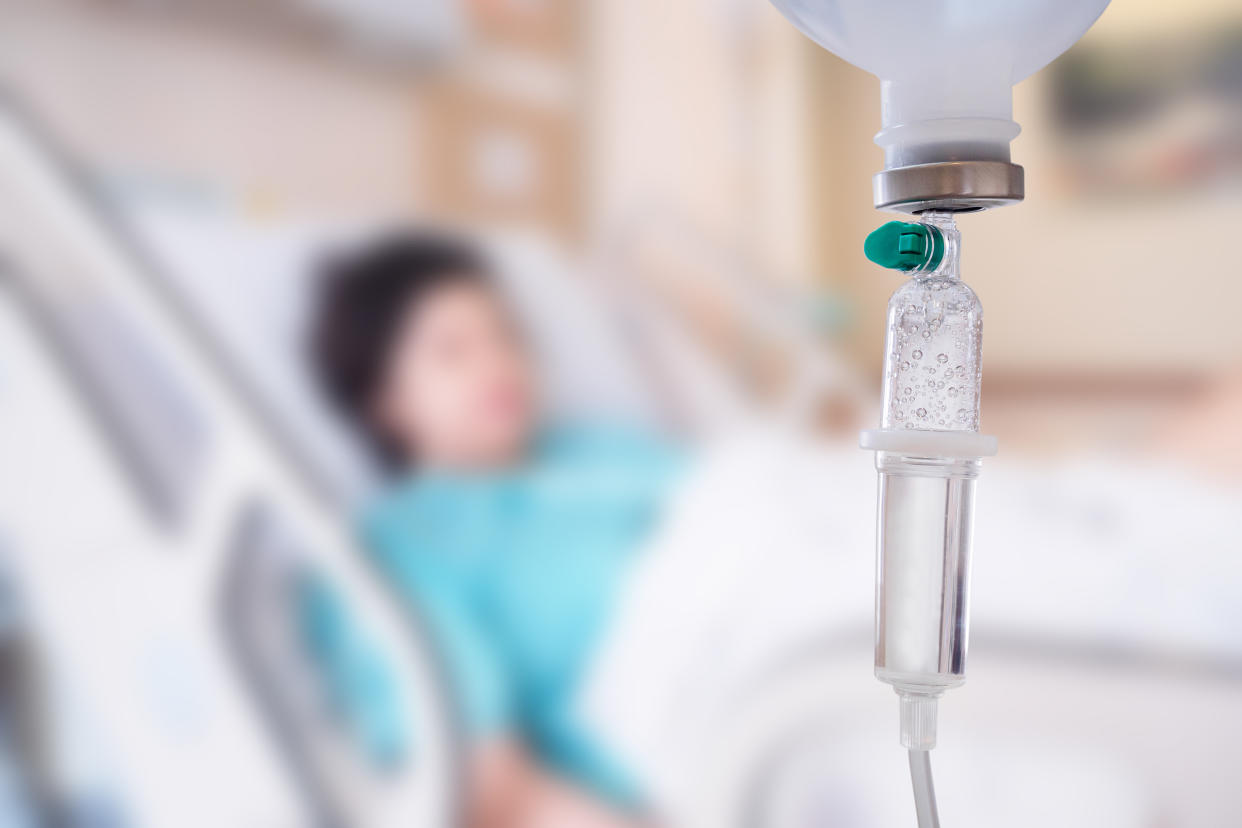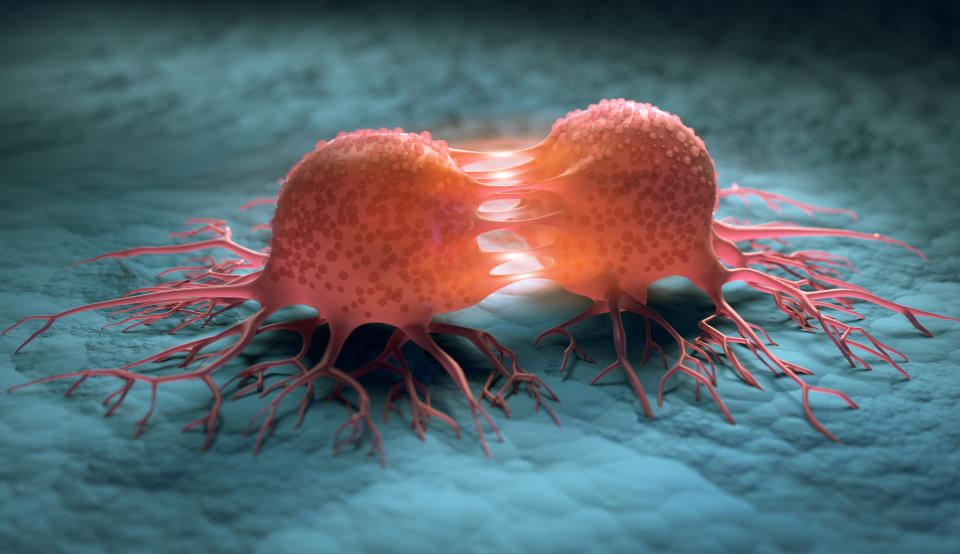Month delay to cancer treatment raises death risk by up to 13%, study suggests

A one month delay to a cancer patient’s treatment could raise their risk of dying from the disease, research suggests.
The earlier a tumour is spotted, the higher a patient’s hopes of recovery, with advanced cancer being more difficult to treat.
By July, up to 2 million routine breast, bowel and cervical cancer screenings were said to have been postponed as a result of the UK’s first coronavirus lockdown. Guidelines also reportedly advised radiotherapy, a go-to cancer treatment, be delayed or avoided in certain circumstances.
With people in England preparing to spend at least the next month at home, officials have repeatedly stressed the NHS is open for business, with screenings expected to go ahead.
Read more: Menopausal women who take HRT may face higher risk of breast cancer
This appears to be critical to a cancer patient’s survival, with scientists from Queen’s University in Kingston, Canada, reporting a four-week delay could raise their death risk by up to 13%.

“A four-week delay in treatment is associated with an increase in mortality across all common forms of cancer treatment, with longer delays being increasingly detrimental,” said lead author Dr Timothy Hanna.
“In light of these results, policies focused on minimising system level delays in cancer treatment initiation could improve population level survival outcomes.”
One in two people born after 1960 in the UK will statistically develop cancer at some point in their life.
Read more: GP demonstrates how to check breasts for signs of cancer
When the first lockdown was imposed on 23 March, Britons were told to only leave their home for “very limited purposes”, like shopping for essentials.
As a result, the number of people visiting their GP with suspected cancer symptoms who were then referred for tests dropped by 60% in April, figures revealed.
At the end of May, urgent referrals were down 45% compared with pre-pandemic levels.
Watch: Breast cancer survivor celebrates her scars
To better understand the impact of delayed treatment, the Queen’s scientists analysed 34 studies carried out between January 2000 and April 2020, with more than 1.2 million patients between them.
They looked at how postponing surgery, systemic treatment – like chemotherapy, or radiotherapy affected patients with cancer of the bladder, breast, colon, rectum, lung, cervix, or head and neck.
Regardless of whether the patient was waiting for surgery, chemotherapy or radiotherapy, the results revealed a four-week delay was associated with an increased death risk.
For surgery, the overall fatality risk rose by 6% to 8% per four-week delay, the scientists reported in The BMJ.
When looking at head and neck cancer specifically, they found waiting for radiotherapy or systemic treatment increased a patient’s death risk by 9%.
A four-week delay to follow-up chemotherapy for colorectal cancer raised the fatality risk by 13%.
Read more: Vaccine prolongs life in mice with lung cancer
Looking beyond one month, the scientists found an eight-week delay to breast cancer surgery increased the risk of death by 17%, rising to 26% when the operation was postponed by 12 weeks.
If every breast cancer patient in the UK had their surgery pushed back three months, for example during the first lockdown, 1,400 “extra” deaths would occur that year, the results suggest.
The same situation would lead to an additional 6,100 fatalities in the US, 700 in Canada and 500 in Australia.
This is assuming surgery was the first treatment in 83% of cases and the death risk with no procedure delay was 12%.
The scientists referenced an algorithm used by the NHS at the beginning of the pandemic to prioritise the patients that needed surgery.
A number of conditions were considered safe to be delayed by 10 to 12 weeks, without any negative outcome being predicted, for example all colorectal surgeries.
“Our results can help to directly inform policy,” wrote the scientists.
“We found increasing the wait to surgery from six weeks to 12 weeks would increase the risk of death in this setting by 9%.”
In June, Cancer Research UK warned the pandemic had triggered a “cancer care backlog”, with around 2.4 million Britons awaiting screenings, tests or treatment.
Breast Cancer Now’s Ask Our Nurses helpline also saw a 60% surge in calls in March.
NHS breast screening was suspended in Wales, Scotland and Northern Ireland. Only some trusts in England provided the service.
A survey of 155 countries by the World Health Organization in May found just over two in five (42%) had partially or completely disrupted cancer treatment.
The Queen’s scientists acknowledged patients with longer treatment delays may have inferior outcomes due to other underlying health issues.
They maintained, however, a large amount of high-quality data was analysed in their study review.
Dr Jodie Moffat from Cancer Research UK said: “Different cancers behave in different ways but for some, just a matter of weeks can be enough for the cancer to progress.
“This is why swift diagnosis and treatment of cancer is so important.
“Predicting the impact of treatment delays is very difficult to do because of all the different factors involved. This study didn’t take account of all the things that may have played a part, so there is more to be unpicked.
“Worryingly, the latest England cancer waiting time data for August shows targets for patients beginning treatment within 62 days of an urgent cancer referral are still being missed.”
Watch: Great British Bake Off contestant dies of oesophageal cancer


